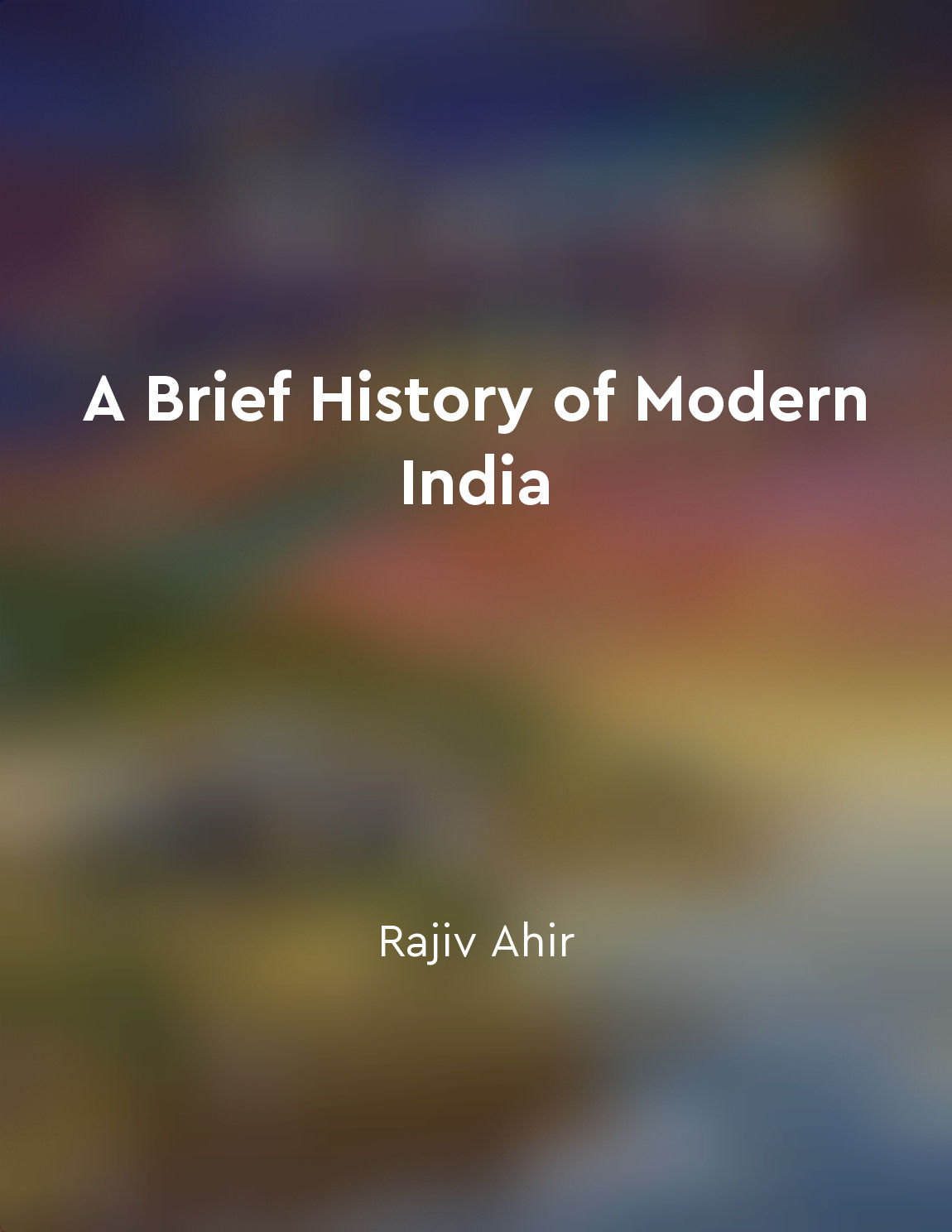Babri Masjid demolition and communal tensions from "summary" of A Brief History of Modern India by Rajiv Ahir
The demolition of the Babri Masjid in Ayodhya on December 6, 1992, was a pivotal event in Indian history. The mosque, which had stood for centuries, was destroyed by a mob of Hindu extremists, leading to widespread communal tensions across the country. The incident sparked violence between Hindus and Muslims, resulting in thousands of deaths and injuries. The roots of the Babri Masjid demolition can be traced back to the 16th century when the Mughal emperor Babur constructed the mosque in Ayodhya. However, it was believed by many Hindus that the mosque was built on the birthplace of Lord Ram, a revered deity in Hinduism. This belief fueled tensions between the two communities for centuries. In the 1980s, the Vishwa Hindu Parishad (VHP) and the Bharatiya Janata Party (BJP) launched a campaign to build a Ram temple at the site of the mosque. The movement gained momentum and support from Hindu nationalists, leadi...Similar Posts
Dr. Ambedkar's vision is a beacon of hope for those striving for a fair and inclusive society
Dr. Ambedkar's vision stands as a guiding light for individuals who are dedicated to building a society that is just and inclus...
Dress and appearance
The Prophet (peace be upon him) was known for his simplicity in dress and appearance. He did not indulge in extravagant attire ...
Struggle for selfgovernance
The struggle for self-governance in India was a long and arduous process that was marked by various phases and strategies emplo...
Vedic texts provide insight into early Indian society
The Vedic texts, such as the Rigveda, provide valuable insights into the early Indian society. These texts are considered to be...
He calls for a reformation of Islamic thought
Muhammad Hasan emphasizes the urgent need for a reformation in Islamic thought. He argues that the current state of Islamic thi...

